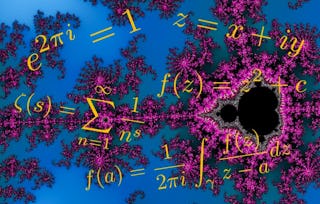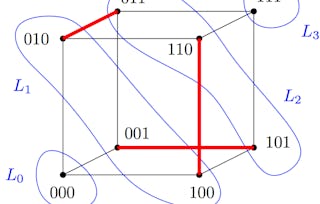Analytic Combinatorics teaches a calculus that enables precise quantitative predictions of large combinatorial structures. This course introduces the symbolic method to derive functional relations among ordinary, exponential, and multivariate generating functions, and methods in complex analysis for deriving accurate asymptotics from the GF equations.

Analytic Combinatorics

72 reviews
Skills you'll gain
Details to know
8 assignments
See how employees at top companies are mastering in-demand skills

There are 8 modules in this course
Our first lecture is about the symbolic method, where we define combinatorial constructions that we can use to define classes of combinatorial objects. The constructions are integrated with transfer theorems that lead to equations that define generating functions whose coefficients enumerate the classes. We consider numerous examples from classical combinatorics.
What's included
7 videos2 readings1 assignment1 discussion prompt
This lecture introduces labelled objects, where the atoms that we use to build objects are distinguishable. We use exponential generating functions EGFs to study combinatorial classes built from labelled objects. As in Lecture 1, we define combinatorial constructions that lead to EGF equations, and consider numerous examples from classical combinatorics.
What's included
7 videos1 reading1 assignment1 discussion prompt
This lecture describes the process of adding variables to mark parameters and then using the constructions form Lectures 1 and 2 and natural extensions of the transfer theorems to define multivariate GFs that contain information about parameters. We concentrate on bivariate generating functions (BGFs), where one variable marks the size of an object and the other marks the value of a parameter. After studying ways of computing the mean, standard deviation and other moments from BGFs, we consider several examples in some detail.
What's included
5 videos1 reading1 assignment1 discussion prompt
This week we introduce the idea of viewing generating functions as analytic objects, which leads us to asymptotic estimates of coefficients. The approach is most fruitful when we consider GFs as complex functions, so we introduce and apply basic concepts in complex analysis. We start from basic principles, so prior knowledge of complex analysis is not required.
What's included
6 videos1 reading1 assignment1 discussion prompt
We consider applications of the general transfer theorem of the previous lecture to many of the classic combinatorial classes that we encountered in Lectures 1 and 2. Then we consider a universal law that gives asymptotics for a broad swath of combinatorial classes built with the sequence construction.
What's included
6 videos1 reading1 assignment1 discussion prompt
This lecture addresses the basic Flajolet-Odlyzko theorem, where we find the domain of analyticity of the function near its dominant singularity, approximate using functions from standard scale, and then transfer to coefficient asymptotics term-by-term.
What's included
5 videos1 reading1 assignment1 discussion prompt
We see how the Flajolet-Odlyzko approach leads to universal laws covering combinatorial classes built with the set, multiset, and recursive sequence constructions. Then we consider applications to many of the classic combinatorial classes that we encountered in Lectures 1 and 2.
What's included
6 videos1 reading1 assignment1 discussion prompt
We consider the saddle point method, a general technique for contour integration that also provides an effective path to the development of coefficient asymptotics for GFs with no singularities. As usual, we consider the application of this method to several of the classic problems introduced in Lectures 1 and 2.
What's included
5 videos1 assignment
Instructor

Offered by
Explore more from Math and Logic
 Status: Free
Status: FreePrinceton University
 Status: Free Trial
Status: Free TrialUniversity of California San Diego
 Status: Preview
Status: PreviewWesleyan University
 Status: Preview
Status: PreviewShanghai Jiao Tong University
Why people choose Coursera for their career

Felipe M.

Jennifer J.

Larry W.

Chaitanya A.
Learner reviews
- 5 stars
80.55%
- 4 stars
11.11%
- 3 stars
2.77%
- 2 stars
1.38%
- 1 star
4.16%
Showing 3 of 72
Reviewed on Feb 15, 2020
Very good class if you're into computer science and enjoy abstract math.There are a few typos in the quizzes that could easily be fixed: make sure you check the forum.
Reviewed on Aug 10, 2020
Excellent course. One minus is that there are some unfortunate typos/errors in the quizzes.

Open new doors with Coursera Plus
Unlimited access to 10,000+ world-class courses, hands-on projects, and job-ready certificate programs - all included in your subscription
Advance your career with an online degree
Earn a degree from world-class universities - 100% online
Join over 3,400 global companies that choose Coursera for Business
Upskill your employees to excel in the digital economy
Frequently asked questions
To access the course materials, assignments and to earn a Certificate, you will need to purchase the Certificate experience when you enroll in a course. You can try a Free Trial instead, or apply for Financial Aid. The course may offer 'Full Course, No Certificate' instead. This option lets you see all course materials, submit required assessments, and get a final grade. This also means that you will not be able to purchase a Certificate experience.
More questions
Financial aid available,

